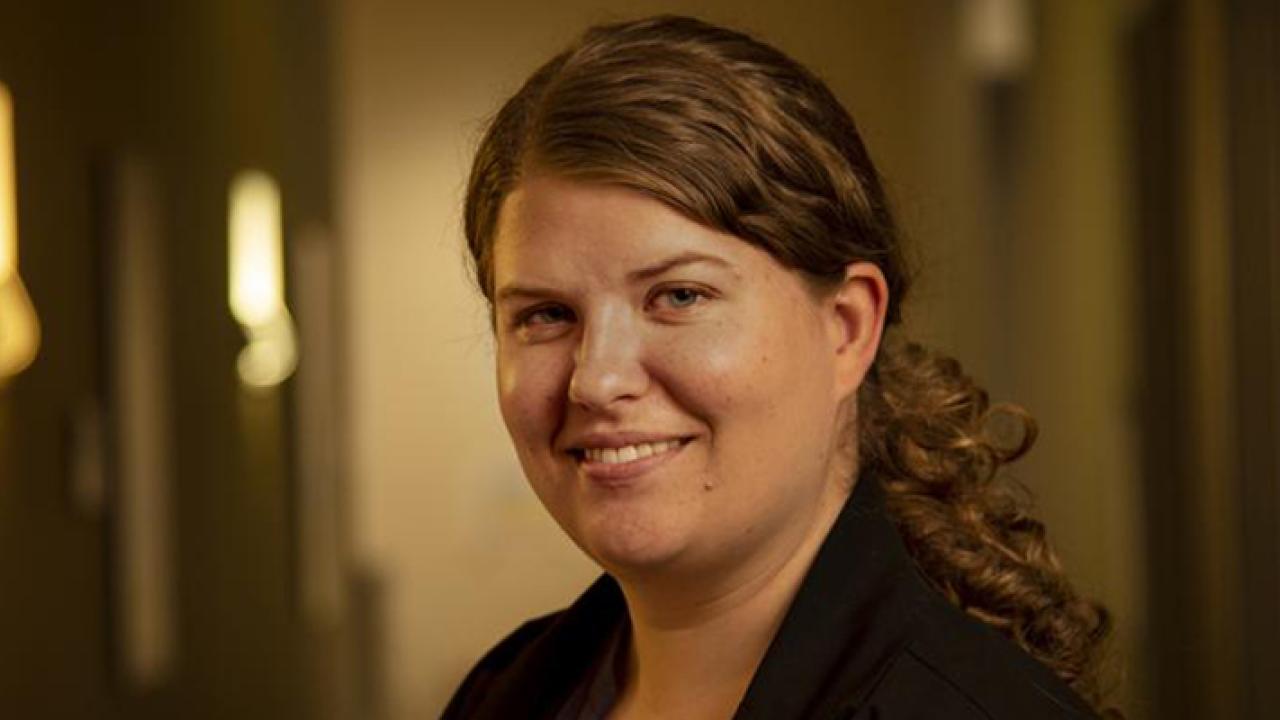
Leaders for the Future: Grad Student Sarah Messbauer Explores Accessibility and Transparency in Grant Applications
Sarah Messbauer is a doctoral candidate in ethnomusicology, studying the impacts of public arts policy on refugee communities in Canada. Messbauer recently completed her tenure as the 2016-2017 graduate student assistant to the dean and chancellor, where she engaged in programming and advocacy efforts aimed at improving the student experience for more than 8,000 graduate and professional students at UC Davis. She is interested in pursuing careers related to strategic initiatives coordinating, project management and instructional design.
Describe your project or venture.
My research focuses on federally funded arts foundations in Canada and how the rules and regulations regarding what they fund ultimately shapes the way people—particularly those who belong to Canada’s rapidly growing population of new and established immigrant communities—understand the value and impact of the arts.
What’s important about your research—and where do you hope to take it?
Many grant institutions have very clear ideas about what their goals are and how they want to affect the communities within which they operate. But it is sometimes the case that the grant process of an institution—which includes calls for proposals, application structures and merit and review procedures—does not produce projects that fully advance those goals. My research helps to bridge the gap between the theories of how these institutions impact their communities with the practice of their impacts on-the-ground. In doing so, I am helping to better align grant institutions’ practices with their goals and making the entire process more accessible and transparent for applicants.
What is the most unexpected advice you received from a mentor?
I spoke with one person at a mentorship event who replied to my elevator pitch with: ‘That sounds completely uninteresting to me’. I was disappointed to hear that, but they followed up by saying, ‘But even though I’m not interested, that doesn’t mean you need to change what kind of work you want to do. It means that we aren’t the right fit, and you need to keep at it until you find an employer who needs the very thing you’re talking about.’ I was impressed that they were able to offer me helpful advice despite their disinterest in the particulars of my work and goals.
What is the most important thing you discovered in the Leaders for the Future program?
Even if you have already tried something, it doesn’t mean you shouldn’t try it again. Even if something seems simple, or rudimentary or basic, that doesn’t mean it won’t be helpful. LFTF forced me to rewind the narrative I had built in my head about my educational path and career plans and start back at the beginning of it all. Making a resume, going to a career fair and giving my ‘elevator pitch’ over and over and over again were things I’d never been pushed to do before, so I never realized the value of them until engaging with this program. At the end of the day, Leaders for the Future has taught me the benefit of small steps. After all, small steps can lead to big changes.
How will your experiences help you to change the world?
Thanks to the support I have received through these programs, I am delighted to say that I have secured full-time, permanent employment in the Office of Research here at UC Davis. I am going to use the grant-writing expertise I developed through my doctoral work to train and supervise campus researchers in their pursuit of research funding. In doing so, I am providing some of the world’s finest researchers with the tools and support they need to change our world for the better.
About Leaders for the Future
A cross-campus collaboration between the Office of Research, the Internship and Career Center, GradPathways and the Mike and Renee Child Institute for Innovation and Entrepreneurship, this five-month program helps Ph.D. students and postdoctoral scholars connect with applied experiences beyond academia through immersives (internships, job shadowing, projects) while supporting business skills development.
For more information, visit the Leaders for the Future webpage.
